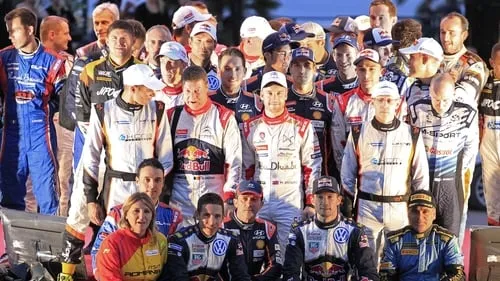In the world of motorsport, few events garner as much attention as the World Rally Championship (WRC). With its thrilling races and passionate fans, the WRC has become a cornerstone of rallying culture. However, recent discussions surrounding the 2025 WRC points system have sparked controversy, particularly after comments made by rally driver Elfyn Evans. In this article, we delve into Evans’ criticisms and explore why the new points system may be considered unjust.
The Background of the WRC Points System
The WRC points system has undergone various changes over the years, aiming to make competition fairer and more exciting. Traditionally, drivers earn points based on their finishing positions in each rally, which contributes to their overall standings in the championship. However, the announcement of the new points system for 2025 has faced backlash for perceived inequalities.
Evans’ Bold Statement
Elfyn Evans, a seasoned competitor in the WRC, has voiced strong objections to the proposed points system. His assertion that it is “unacceptable” highlights a growing concern among drivers regarding fairness and competitiveness. According to Evans, the new system disproportionately favors certain drivers while marginalizing others, which contradicts the spirit of the sport.

Key Issues with the 2025 Points System
1. Disproportionate Rewarding
One of the critical issues Evans points out is the disproportionate rewarding of points based on specific finishing positions. The new structure may lead to scenarios where a driver can secure a championship with fewer wins than their competitors, undermining the significance of hard work and skill.
2. Lack of Consistency
Another major concern is the lack of consistency in how points are awarded across different events. With varied terrains and conditions, the performance of drivers can fluctuate dramatically. A system that does not account for these variables can lead to unjust outcomes, as emphasized by Evans in his critique.
3. Impact on Team Dynamics
The new points system could also affect team dynamics within the WRC. Teams often rely on their drivers to perform consistently, but if the point structure favors certain performance metrics, it can create discord among teammates. Evans argues that this could lead to strategic decisions that prioritize individual standings over team success.
The Call for Reform

Evans has not only criticized the 2025 point system but has also called for a reform that prioritizes fairness and competitiveness. He advocates for a system that rewards drivers based on their performance throughout the season rather than a few isolated events. This call to action resonates with many fans and fellow drivers who believe that the integrity of the sport should come first.
Conclusion: A Need for Change
The reaction to the 2025 WRC points system has unveiled significant concerns regarding fairness and competitive integrity. Elfyn Evans’ strong stance against this new structure highlights the necessity for reform that aligns with the values of the sport. As the WRC moves forward, it is crucial for governing bodies to listen to the voices of drivers and fans alike, ensuring that the championship remains a true test of skill, perseverance, and teamwork.
By addressing these issues, the WRC can uphold its reputation as one of the most thrilling and equitable motorsport competitions in the world. The future of the championship depends on making decisions that prioritize fairness and integrity, keeping the spirit of rallying alive for generations to come.



